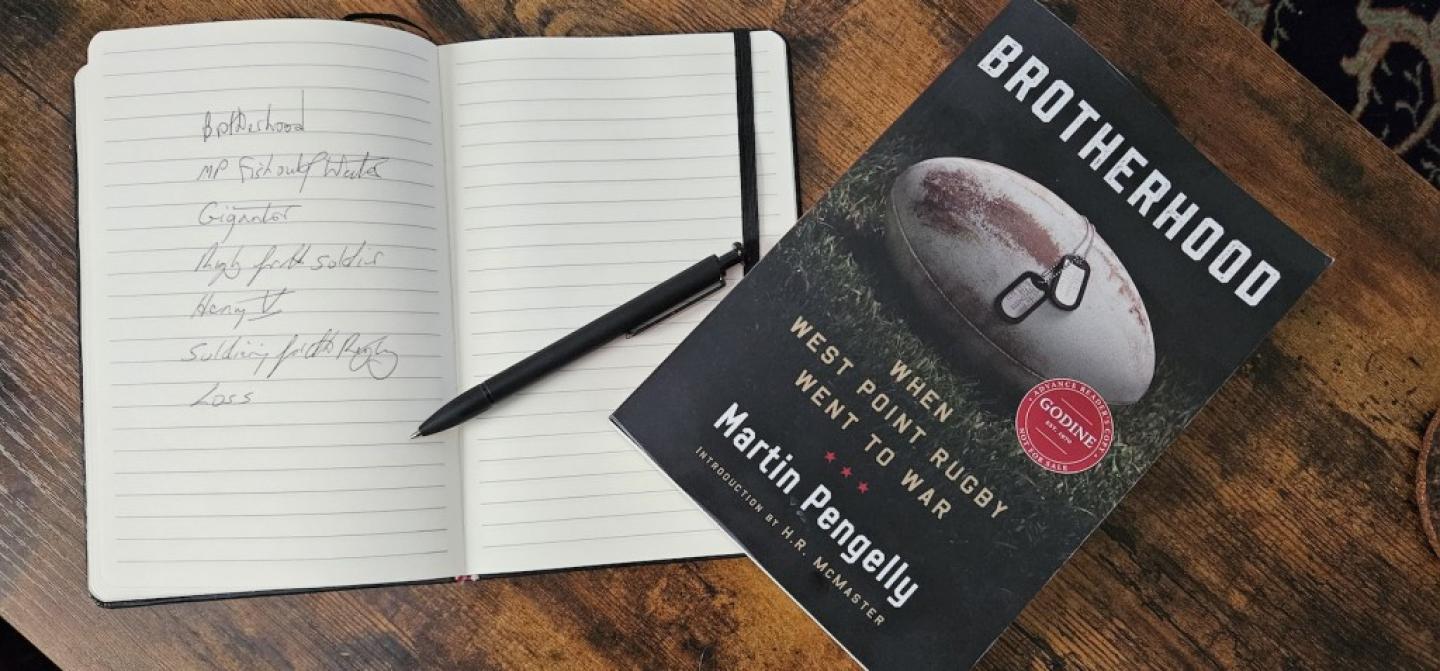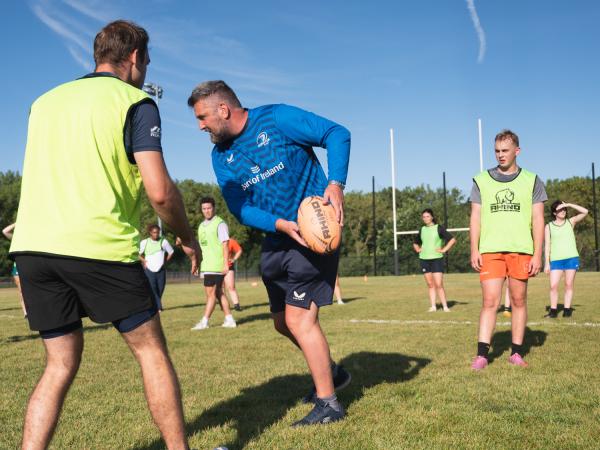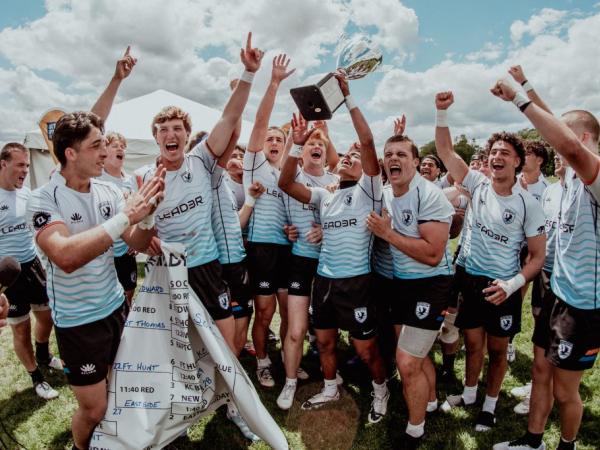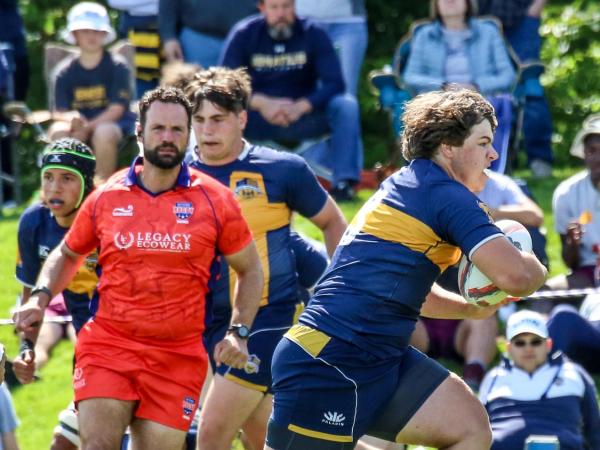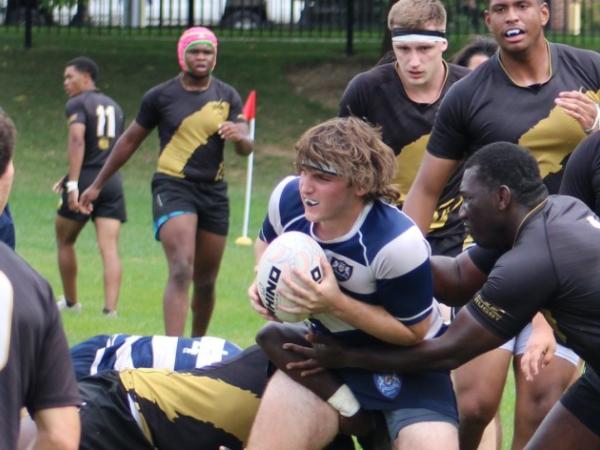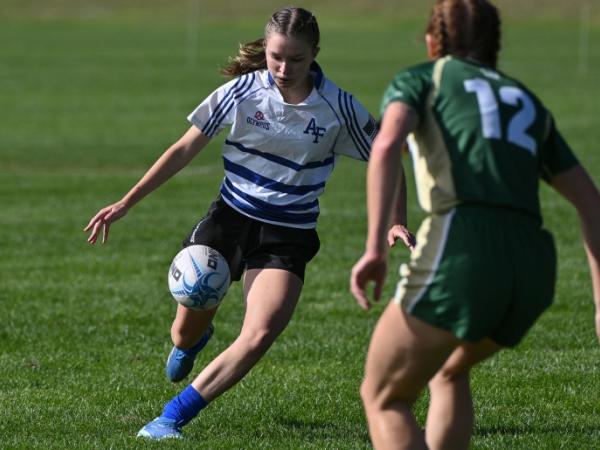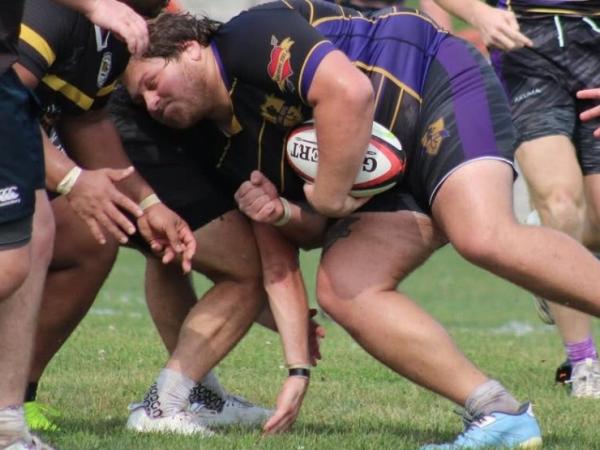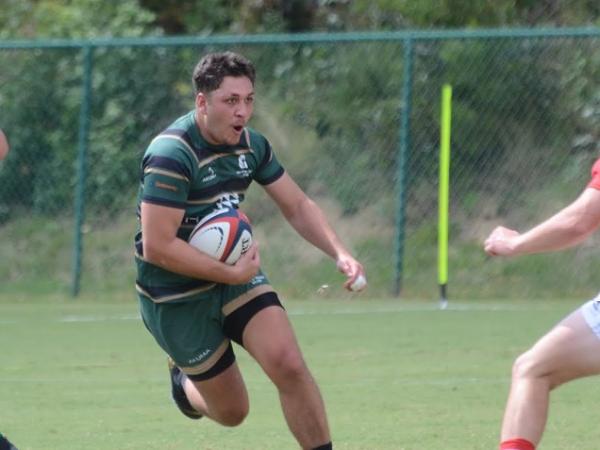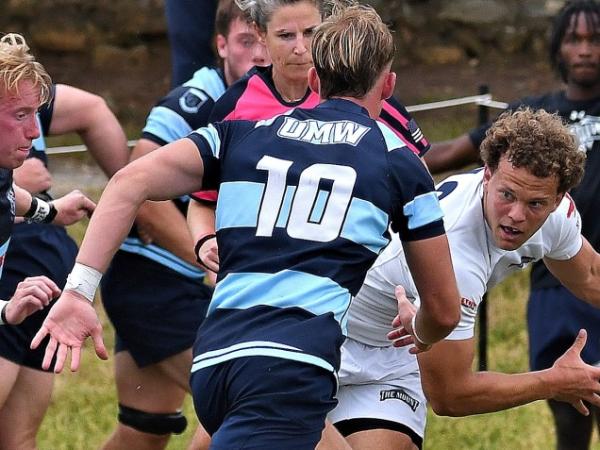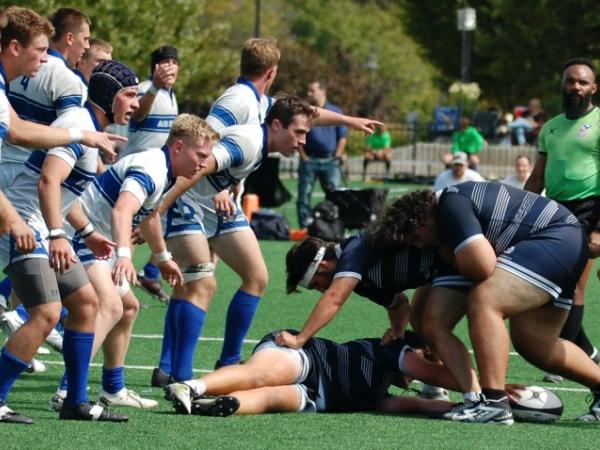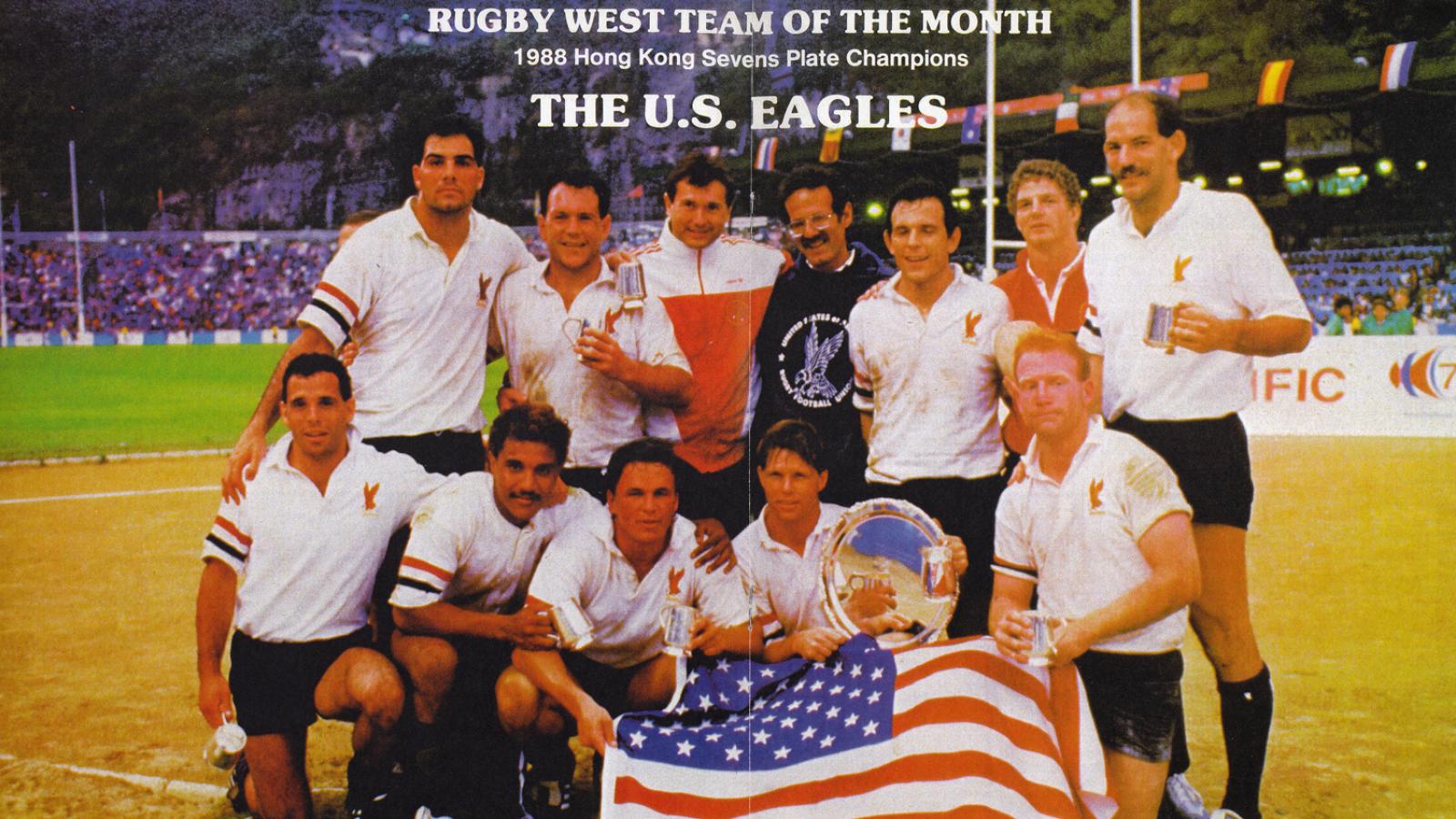The book follows the players through their years at West Point. His understanding of that rugby camaraderie is clear, but he has to learn a bit more about the camaraderie of the West Point plebe, or, for that matter, the soldier. A writer from the Guardian is now a little out of his element, but Pengelly is wise to recognize that and learn from it.
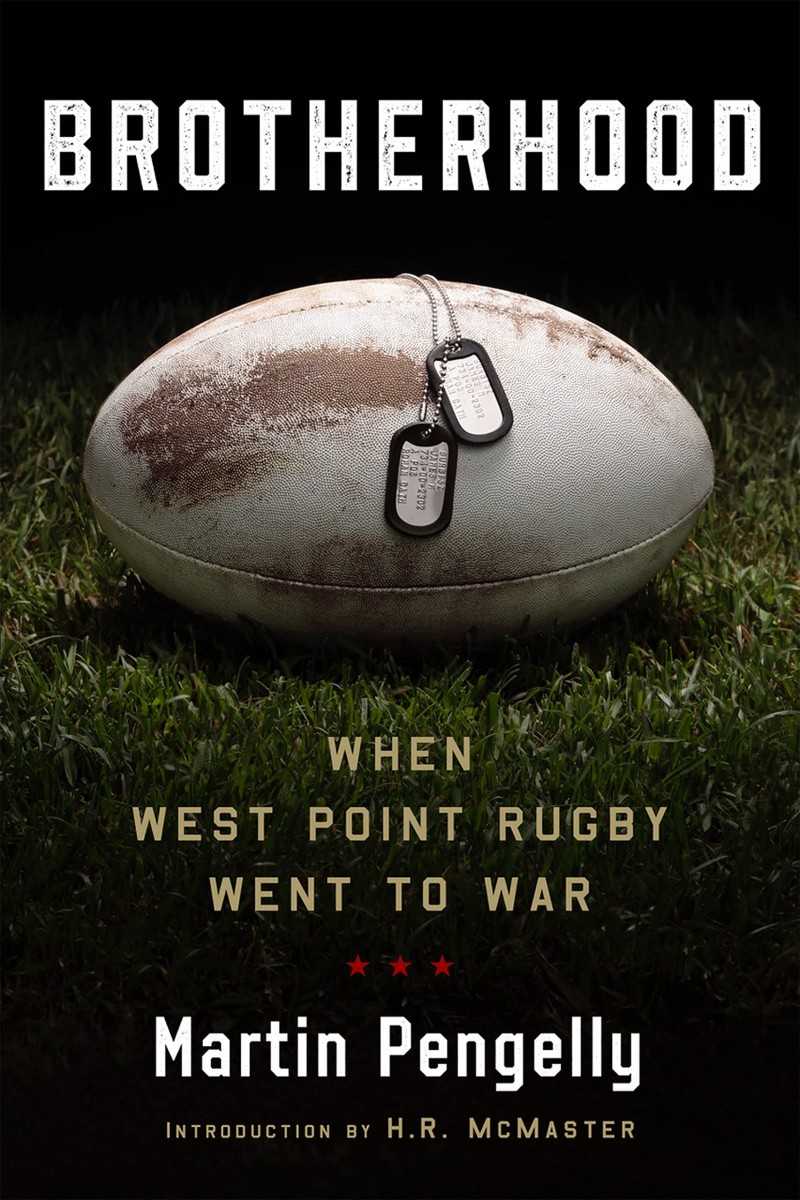
Brotherhood When West Point Rugby Went to War
Almost comically he also has to expose himself to life in part of America where the military and the flag mean everything. It's a new venture for the writer but also allows him to contrast the different cultural hotspots in the USA—the surfer dudes, the rednecks, the nerds are all in there. And there's plenty of fun. This is not a eulogy despite the tragedy that lurks. This is a memoir of young men being young men—post-training kegs in a secluded parking lot, the legend of Gigantor, finding that one special place and time (the rugby field) that makes it alright. This is a story of these kids becoming warriors, and going to war.
So I won't spoil it, what happens to everyone, because the cloth Pengelly weaves is worth it. What I will say is this is is a book that every rugby player will read and understand, and then see and perhaps understand more about what it is to be a soldier.
Shall Be My Brother
It's interesting that Shakespeare's Henry V permeates the book. Henry's St. Crispin's Day speech before the Battle of Agincourt is of course legendary—"for he to-day that sheds his blood with me shall be my brother"—and the West Point rugby players embrace that. As they embrace another Henry V quote from the same speech—"we few, we happy few, we band of brothers." Band of Brothers, the TV miniseries that they all watched over and over.
But I am also put in mind of another speech from the same play, when Henry is courting Catherine of Valois: "take me, take a soldier; take a solder, take a king."
Permeating through all of this also is the dad figure, Mike Mahan. The godfather of the West Point program and the head coach for decades, his memory of these players, that team, and the times, is priceless.
The end for the 2002 West Point rugby team is sometimes happy, sometimes tragic ... sometimes it just is. The story of Jim Gurbiscz is inspiring, but are Matt Blind, Mo Greene, Scott Radcliffe, or the brilliant Zac Miller any less so? It's up to you to see.
I applaud Martin Pengelly for writing this book in part because he unleashes some serious journalistic chops in getting to the heart of some events, and because he bared himself in it, too. He met with players past and present, parents of the fallen; he allowed himself to see the scars rather than observe from afar. For anyone who loves rugby, loves what it means, and can see it in a greater context, you should buy this book. For anyone you know who may not be a rugby fan, but is willing to get a little Afghanistan dirt blowing in their eyes, you should buy this book.
If you can, please us the link in this article, as GRR gets a small percentage when you buy. Brotherhood will be officially released on October 17 but you can pre-order now as a printed book or on Kindle using this link>>





